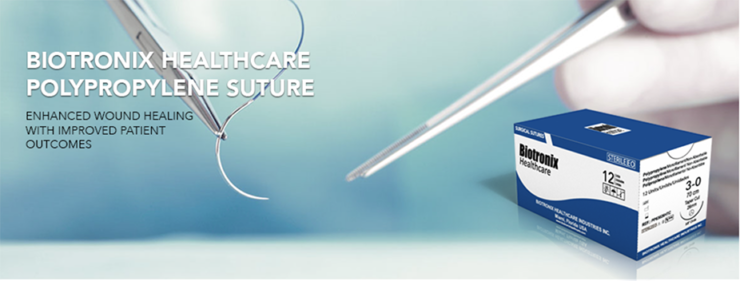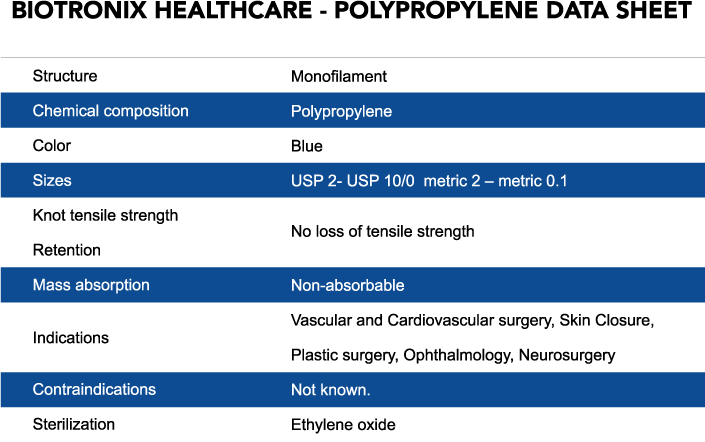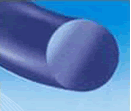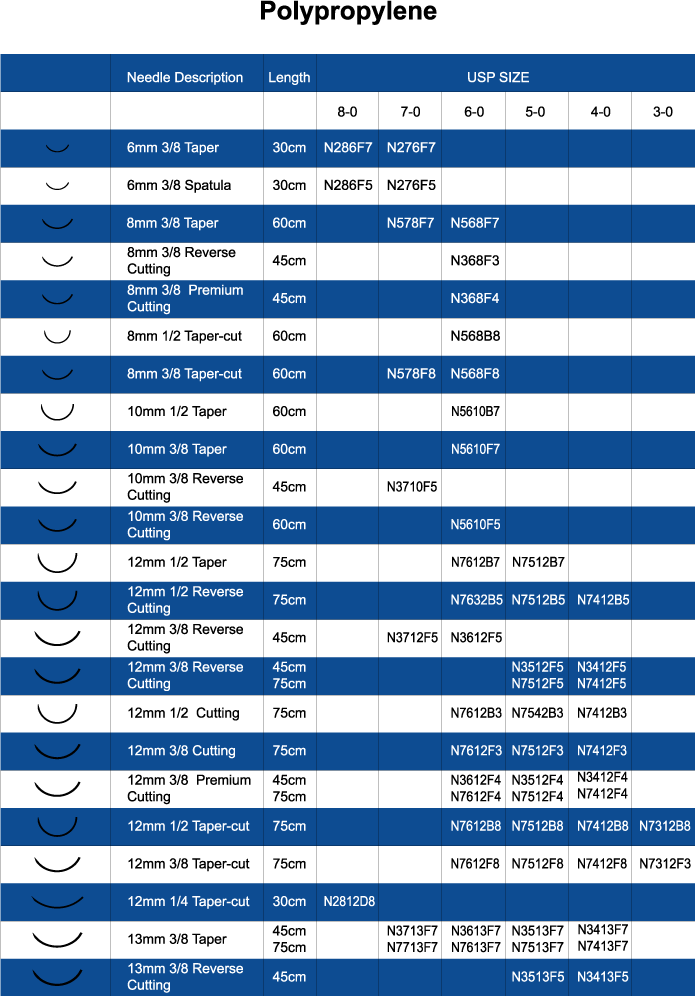Sutures Needles
Category
NEED MORE
INFORMATION
CONTACT US
Biotronix Healthcare Customer Service Associates are available 8:30am to 5:pm EST Monday thru Friday
North America Customer Service
Tel: (954) 320-6088
(954) 440-1572
customerservice@biotronixhealthcare.com
International Customer Service
Tel: (289) 813-0159
(416) 876-5035
customerservice@biotronixhealthcare.com
______________________________________
Sales and Orders
Tel: (954) 266-8944
sales@biotronixhealthcare.com
______________________________________
Regulatory Affairs
regulatory@biotronixhealthcare.com
______________________________________
Accounting Department
accounting@biotronixhealthcare.com
______________________________________
Call to speak with a knowledgeable Biotronix Healthcare specialist today.

Polypropylene
Biotronix Healthcare Polypropylene sutures is a synthetic non-absorbable suture composed of long-chain polyolefin polymer known as polypropylene. Biotronix Healthcare’s polypropylene is available uncoated, because of its smooth surface, it enhances handling properties, smooth passage through tissue and knot security.
Unlike some absorbable sutures, Biotronix Polypropylene is not subject to degradation or known to lose tensile strength. Biotronix Polypropylene suture meets U.S.P. requirements as described in the U.S.P. Monograph for Non-absorbable Surgical Sutures.

Characteristics of Biotronix Healthcare Polypropylene sutures:
• Drill End Press Fit needles for maximum strength between thread and needles
• Smooth Passage through tissue
• Tensile strength retained indefinitely
• Minimal tissue reactivity
• Maximum flexibility
• Excellent knot security
• Not effected or weakened by tissue enzyme
• Does not harbor micro-organisms
 Packaging:
Packaging:
Individually packaged 12 or 36 per box. Also available in reels.
Contraindications
The use of this suture is contraindicated on patients with known sensitivities or allergies to its components.
Warnings
Do not use if package is open or damaged or if the expiration date has been exceeded. Discard open unused sutures. Do not resterilize; resterilization may alter the physical properties of this suture. Users should exercise caution when handling surgical needles to avoid inadvertent needle sticks. Discard used needles in a “sharps” container. Avoid storing product at elevated temperatures. As with any foreign body, prolonged contact of this or any other suture with salt solutions, such as those found in the urinary or biliary tracts, may result in calculus formation.
Users should be familiar with surgical procedures and techniques involving nonabsorbable sutures before employing Polypropylene for wound closure, as the risk of wound dehiscence may vary with the site of application and the suture material used. Acceptable surgical practice must be followed with respect to drainage and closure of infected or contaminated wounds.
Precautions
In handling this or any other surgical sutures material, care should be taken to avoid damage from handling. Avoid crushing or crimping damage due to application of surgical instruments such as forceps or needle holders. Adequate knot security requires the accepted surgical technique of flat, squared ties with additional throws as warranted by surgical circumstance and experience of the surgeon. The use of additional throws may be particularly appropriate when tying monofilaments.
Adverse reactions
Adverse effects associated with the use of this device include: wound dehiscence, calculus formation in urinary and biliary tracts when prolonged contact with salt solutions such as urine and bile occurs, infected wounds, minimal acute inflammatory tissue reaction, and transitory local irritation.

